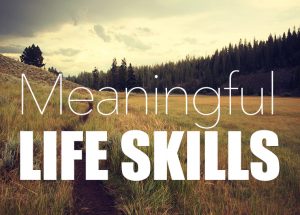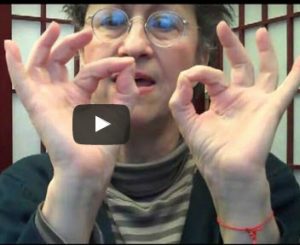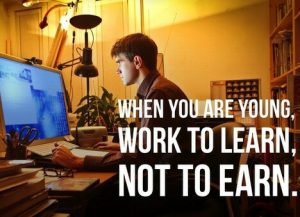 Simple answer: You lack skills and capacities… You can boil water, make coffee in the coffee maker, drive a car, open your smartphone… You are not quite hopeless… or are you? Not quite hapless either… or are you? ((Here is an article, 10% truth value… others talk about the topic… read it and feel how confusing it is…
Simple answer: You lack skills and capacities… You can boil water, make coffee in the coffee maker, drive a car, open your smartphone… You are not quite hopeless… or are you? Not quite hapless either… or are you? ((Here is an article, 10% truth value… others talk about the topic… read it and feel how confusing it is…
 Skills vs Competencies. What’s the Difference?
Skills vs Competencies. What’s the Difference?
Gail Sturgess-December 6, 2012-Competency Managemen
What is a Skill?
These definitions were extracted from a number of different sources, but they all seem to say, more-or-less, the same thing:
- Proficiency, facility, or dexterity that is acquired or developed through training or experience.
- The ability, coming from one’s knowledge, practice, aptitude, etc., to do something well
- An ability and capacity acquired through deliberate, systematic, and sustained effort to smoothly and adaptively carry out complex activities or job functions involving ideas (cognitive skills), things (technical skills), and/or people (interpersonal skills).
- A skill is the learned capacity to carry out pre-determined results
- A learned ability to bring about the result you want, with maximum certainty and efficiency
- Proficiency, facility, or dexterity that is acquired or developed through training or experience.
So, a Skill is something Learned in order to be able to carry out one or more job functions.
What is a Competency
Again, these definitions were extracted from a number of different sources:
- A cluster of related abilities, commitments, knowledge, and skills that enable a person (or an organization) to act effectively in a job or situation.
- Competencies refer to skills or knowledge that lead to superior performance.
- Measurable skills, abilities and personality traits that identify successful employees against defined roles within an organisation
- A competency is more than just knowledge and skills. It involves the ability to meet complex demands, by drawing on and mobilising psychosocial resources (including skills and attitudes) in a particular context.
- A measurable pattern of knowledge, skills, abilities, behaviours, and other characteristics that an individual needs to perform work roles or occupational functions successfully.
- Competencies specify the “how” (as opposed to the what) of performing job tasks, or what the person needs to do the job successfully.
Competencies, therefore, may incorporate a skill, but are MORE than the skill, they include abilities and behaviours, as well as knowledge that is fundamental to the use of a skill.
An Example
An example of this in an IT context is “Programming”. To effectively write a computer program one needs good analytical, logical, and interpretive ability as well as the skill to write the program in a specific language. So, learning Java, C++, C#, etc. is a Skill. But underlying the ability to use that skill effectively is analytical, logical and interpretive ability – those are Competencies.
The reason that we suggest this is because it is relatively easy to learn other programming languages once one knows one language well (and I talk from personal experience). However, without the underlying Competence, it is virtually impossible to write an effective program – irrespective of the language.
Types of Competencies
Competencies effectively fall in three groups:
- Behavioural (or Life Skills) Competencies Life skills are problem solving behaviours used appropriately and responsibly in the management of personal affairs. They are a set of human skills acquired via teaching or direct experience that are used to handle problems and questions commonly encountered in daily human life. Examples are: Communication, Analytical Ability, Problem Solving, Initiative, etc.
- Functional (or Technical) Competencies Functional Competencies relate to functions, processes, and roles within the organisation and include the knowledge of, and skill in the exercise of, practices required for successful accomplishment of a specific job or task. Examples are: Application Systems Development, Networking and Communication, Database Analysis and Design, etc.
- Professional Competencies Professional competencies are competencies that allow for success in an organisational context. They are the accelerators of performance or – if lacking in sufficient strength and quality – are the reason people fail to excel in jobs. Examples are: Business Environment, Industry and Professional Standards, Negotiation, People Management, etc.
Levels of Criticality
In any organisation there are some Competencies that are more important than others, based on different criteria:
- Core Competencies – Core competencies are those competencies that any successful employee will need to rise through the organisation. These Competencies would generally relate in some way to the business of the organisation.
- Key Competencies – Key competencies contribute to valued outcomes of the organisation, defining the abilities of individuals to meet strategic demands, and are important not just for specialists but for all individuals.
- Critical Competencies – Critical competencies are competencies without which the organisation will be unable to achieve it’s goals and strategy.
and some more clarification…
Skill: Noun
Capacity to do something well; technique, ability. Skills are usually acquired or learned, as opposed to abilities, which are often thought of as innate.
Capacity: noun (plural: capacities)
- The ability to hold, receive or absorb
- A measure of such ability; volume
- Capability; the ability to perform some task
- Mental ability; the power to learn
- A faculty; the potential for growth and development ))
If you remember, my passion, my purpose, my reason d’etre is to penetrate the invisible portion of all knowledge. It gives me joy, and it keeps me busy.
One of the tools I use to do my “work” is the ability to see what I feel. See its size, nature, movement, and its connections to other things. I am an empath and I am (I hate the word) a clairsensar, which means what I just said… I see what I feel… blah blah blah.
 The other tool I use is muscle testing while connected to Source, aka all-knowledge, aka the zero-point field. Why not just muscle test my body? Because your body is self-interested, not truth-interested… will explain in another article.
The other tool I use is muscle testing while connected to Source, aka all-knowledge, aka the zero-point field. Why not just muscle test my body? Because your body is self-interested, not truth-interested… will explain in another article.
OK, enough about me, for now…
 This article is about skills and capacities.
This article is about skills and capacities.
Capacities is a DNA thing… according to my feelings and muscle testing, are parts of your DNA that can be activated or not.
Activation can happen two ways: by the body being notified that you are in constant need of a capacity, or by energetic activation.
For years I hoped that I can do the work for you and activate capacities without your active participation. I was very disappointed to find, that the body is smarter than I am. It takes a lot of energy to keep a DNA capacity active, and unless it is used, unless it is really needed, the body deactivates it.
The few exceptional students that are ambitious enough to get themselves in sync with this fact, are doing “spiritual practices” to keep their capacities open, or to open new ones up.
Connecting the dots is a capacity that allows you to see principles and laws accurately, and see them in many different contexts. A very high level of capacity that requires other capacities to be open at the same time: put new knowledge (for example what you read) in long term memory, a wide cone of vision (i.e. see more than just a sliver of reality visible), seeing the world as unrelated to you (reducing the about-me score in your Starting Point Measurements), and be able to distinguish that a principle or a law is not a local phenomenon, that it is portable.
Most people are trained zombies… unaware, uninterested, un-ambitious, asleep, and blind.
They are not my ideal clientele, because it takes more to wake them up than what I am willing to invest.
Your yearning to become free, happy, rich, whatever, doesn’t qualify you for training… Even Michael Jordan had to prove his mettle before he was accepted to be trained to be a world class basketball player.
So what did he do to earn that privilege to be accepted to be trained?
What he did was built skills and changed his world-view, aka philosophy.
What did you do to be accepted in my trainings… or to have a great life? Most likely nothing or not much.
The world view most people have is that desire is enough.
People who visit my site want things. Experiences, feelings, stuff.
Largely without ever having to do much for it.
But when we scratch the surface, you don’t have spiritual capacities, and you don’t have skills.
There are 160 capacities that you can build your life on… and the average number of capacities open in the human genome is 1.
Among the people who ask for their Starting Point Measurements, the average is 0.
Which means, the people who can, are busy doing something in life. The people who can’t are fantasizing about having. Or feel depressed because their life is empty.
The few people who have more than 1 capacity open, among the people I have measured, have demonstrated their willingness, their stick-toitiveness, persistence, willingness to work, by getting a degree in something that needs capacities to be open… like a professional degree.
Interestingly, humanities degrees don’t open up spiritual capacities. My philosophy student friend, PhD student, has none open. My philosophy student, graduate school, has two capacities open, neither of which was opened by his schooling, the capacities that got opened, opened through his interest and working with music, and instrument, working with and in a band.
One of the capacities you need, if communication is important in your life, is seeing the world through other people’s eyes. From their vantage point.
Another capacity that you need is to be able to pinpoint, catch, and alter your movement “on the fly”, when you can see that it is not in your best interest to continue the movement the way it’s coming, like in the event your “case” is acting up.
Even recognizing it in hindsight is hard, but catching it as it is starting to move you in a predictable direction is wicked hard and needs the capacity to be fully open.
But, of course, you are busy being in your head… awareness is missing.
Awareness is a capacity. But if you need to intend to be aware… look about you, take your head out of your arse, is not the same as the capacity to be aware, as a way of life.
Awareness is Tai Lopez’s choice to predict your chances for success in life.
Of course you have SOME capacity for awareness, the worldwide average of the time you spend being aware is 7%.
What does it mean to be aware?
It is simple, and rare… interface with reality the way reality is… without the interference of your mind, the words, the emotions. Feelings are OK… they are part of reality. Emotions, on the other hand, are ALL marker feelings, created by the Tree of Knowledge, the Tree of Good and Evil… not by reality.
There is no drama in reality, there is nothing missing in reality, there is no GOOD OR BAD in reality. Things just are, doing what they are doing. There is also no YOU in reality, apart from your actions.
Now, I am painting a very gloomy picture of you and of humanity. And it is 100% accurate.
The questions you should ask now is this: what can you do to raise your numbers, the number of capacities, your level of awareness, etc.
Here is how it works: you need to embark on a journey of doing things that require you to develop skills. While you are building skills, the capacities to perform the skill well will open up.
- Learning about things don’t open up capacities, don’t build skills.
- Doing too little of something won’t build skills.
Examples:
- Most people can drive, but driving well, under any circumstances, is a skill most people don’t have. It requires long and arduous training…
- Most people can read, but to read and benefit from it is a skill that only conscious training can produce.
- Most people can operate a computer, but to be good at it, a wiz… that requires long and arduous training. Not using but train to do difficult stuff… consciously, at least a hundred hours.
Most people have no skills. You may be doing things, but you have never invested the time, the energy, the consciousness to make yourself good at the doing… so the doing becomes skill based.
Most of my students come to me without any skills. Some with a high ambition score, and a willingness to put themselves in training, will develop skills. At least one… and having one skill puts you above 70% of the general population. Wow, Sophie, that must be an exaggeration… Sadly enough, it isn’t.
What contributes to you having no skills?
I would say that your parents, especially your mother.
The “wiping your ass” desire of the mother.
One of the best movies to show skill development is Julie and Julia. Julie a woman in Brooklyn, NY who decides to spend 100 days to cook 100 recipes of Julia Childs.
And Julia in the title of the movie, IS Julia Childs.
The scene showing skill building is the French culinary school, where Julia learns to chop onions. Fast and yet precisely.
Do you remember any time when you practiced a step, like Julia? No? Then you probably have no skills.
You don’t build skills by simply doing, even doing the best you can. Learning a skill is like a drill… needs grit, needs a drill sergeant… or no skill gets built. And no capacities will open.
You can’t do it “by-the-way”, you need to put all power in the action, or nothing will happen.
The body will not be willing to lay out the extra energy it needs to maintain the capacities.
Skateboarders, breakdancers, magicians… can’t do it without building a skill.
Compare it with musicians in bands… you can be in a band, and have no skills. You do music the way you drive. So-so.
Picasso… paid the price…
Building a skill is doing it way way way beyond your natural ability of doing it.
It hurts.
No pain, no gain.
That is the principle. True everywhere.
I am developing MY skill to train people to become human beings.
So I am taking people into my classes who are hard to train, who have no willingness, and no history of willingness to put out the effort to develop a skill… any skill.
Training those people develops me faster than training willing people… you need resistance to grow.
Really, no pain, no gain. Grrrr.
Read the original article: Why is it so hard to get out of the rut you are in?